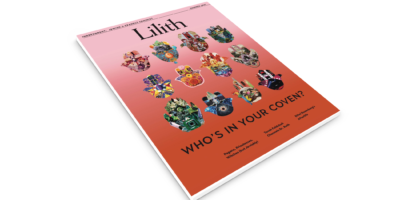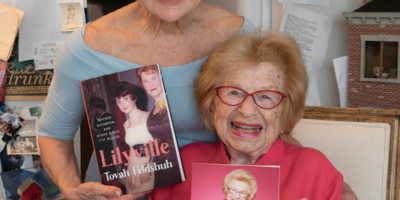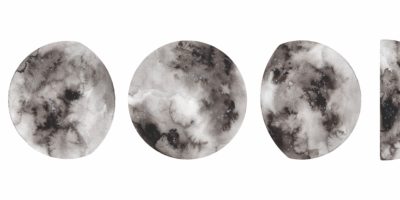Rockets, Bombs and Babies: Wartime in the Maternity Ward
I spent the recent 11-day war between Israel and Gaza in the maternity ward in Soroka hospital in Beersheva looking after my daughter, first for a few days of labor and then following the birth of her twin girls. These were days when Beersheva was in Hamas’ crosshairs, especially at night, and sirens regularly announced incoming rocket attacks—hundreds of them—giving residents 15 seconds to find a safe room or, in the case of the hospital, a semi-safe hallway. This meant days of contraction-siren-run-contraction-siren-run to feed-siren-run-diaper-siren-run.
Any woman who has ever given birth will appreciate the challenge of trying to run either during heavy contractions or during those first days of recovery. The images of all these new mothers running for cover with their newborns will stay with me for a long time. Yet, despite its intensity, the experience was also oddly divorced from politics. During those 11 days I didn’t spend much time following the news, though I was living smack in the middle of it. As we stood in those hallways, the Muslim, Jewish, and Bedouin women of all ages and skin colors were more likely to comment on the beautiful hair of each other’s babies than to even mention politics or war. In that setting, it didn’t even make sense to frame the rocket experience as particularly aimed at Jews. It was just part of the violence aimed at humanity.
I am so tired of this endless cycle of violence. I have been living in Israel for nearly 30 years, and I have lost count of how many of these violent eruptions we have lived through during that time. It’s
always the same… What’s more, I am tired of the rhetorical battles that accompany every one of these violent eruptions. All these words that have been repeating, over and over again, for decades. The same arguments I have been hearing since I was in high school in Orthodox Brooklyn—“they” all want to kill “us”; “they” started. It is language created by men in power who are completely disconnected from the actual lives, especially of women on all sides, women who are tasked with the everyday work of sustaining life rather than destroying it…
I feel completely unrepresented in the political discourse. Even though I’ve dedicated my entire life and career to Israel and Jewish life, I do not feel that “my people” are Jews, and the “enemy” are the people living in Gaza. I don’t believe that at all. No. My people are not Jews but are rather those who simply want to live life, with joy and creativity and relationships and without hurting anyone else. And the enemy of my people are those who think that a solution lies in violence. That argument is not morally sustainable. And I’m tired of hearing it justified. I’m especially tired of those ideas claiming to represent me—me as a Jew, me as an Israeli, me as a person who was running for cover. I am all those things, and yet I do not want to be bombing anyone else on my behalf….
The lesson Israeli leaders should be taking from 3000 Hamas rockets in 11 days is that there may always be weapons ready to be aimed at us. Hamas clearly could have done this any time– but until
Sheik Jarrah, they chose not to. We may never be able to control what weapons Hamas builds or stockpiles, but we can control whether or not they want to use them against Israel. That is where our real power lies. The best way to avoid war is to reduce the amount of hate in the world. We can birth life instead of birthing violence…
If there is one lesson that I took from spending the war in a maternity ward, it’s this. We need voices that consider all life sacred. That must be our starting point. It’s time for new thinking, new approaches, and new solutions. A new concept of being human first. Even for Jews.
Elana Sztokman on the Lilith Blog, June 9, 2021.




